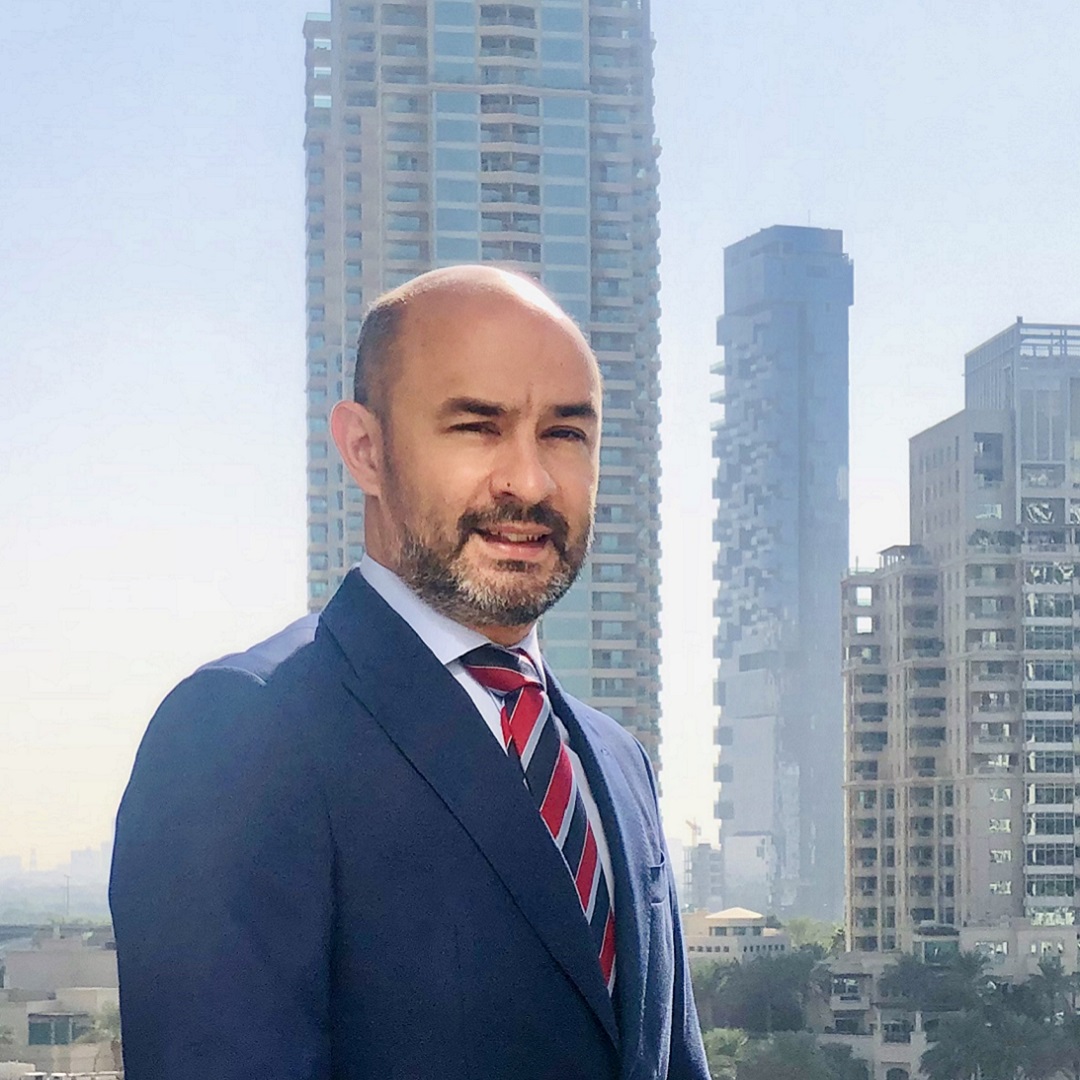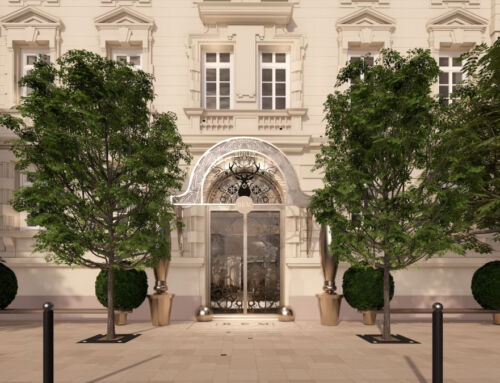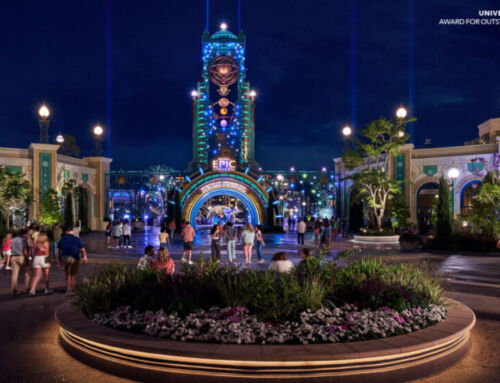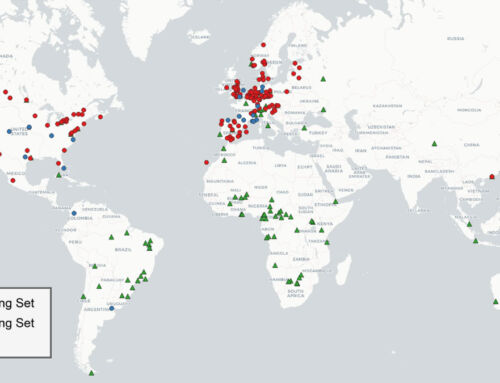We invite you to enjoy the second part of the interview we had with Bogdan Petrescu, an independent consultant with experience around the world.
Amusement Logid: You worked in many countries: United Arab Emirates, Croatia, Italy, Bulgaria, Morocco, Kazakhstan, etc. What are the differences between some destinations and others?
Bogdan Petrescu: I worked in more than 30 countries and traveled to about 80, and I can tell you one thing: on this planet, there is no place that doesn’t have the potential to be a fantastic destination. Everywhere there is something unique and amazing; every place has the potential to be a great destination. In all the countries that I visited, even the less developed ones, people were proud of their country and told me that they have “the most beautiful … “ or “the best …”. The challenge is thus very simple: find the unique attributes of each place and transform them into a fantastic tourism product!
Abu Dhabi and Dubai are great examples: a few years ago, there was literally nothing here and it was very difficult to see any development potential on this land – or sand – where there is not one single river. But thanks to their ambition and their hard work, the Emiratis transformed the country into a paradise that everybody should visit. Today they serve (or should serve) as inspiration to many traditional destinations. Having said that, when you work internationally, you have to be very open minded and adapt yourself to the “working way” and to the habits of each country. Applying the same behaviors in all countries is the best road to failure. You can’t have a good meeting in Spain if you are unable to speak about football. In Italy, everything is like a spaghetti: never straight forward. In the UK, never arrive 1 minute late to a meeting or a conference call. In Eastern Europe, the bureaucracy will make you lose your hair. In the Middle East, it’s all about personal relationships and taking coffees with people. And in Kazakhstan be very respectful with the boss as the traditional mindset is still very present. This is what makes this planet so diverse and so exciting to explore.
A.L.: What strategy would you recommend for the development of destinations as Yas Island, in Abu Dhabi?
B.P.: Yas Island is a real success story in the UAE. Apart from its first-class attractions, it’s the only destination of this scale that created a real brand – not just a logo – and integrated everything under one concept of leisure destination. Its positioning is very clear and that helps a lot when selling the destination abroad.
About the development strategy itself: Yas is very new and developing such a large destination is a long-term game. What you see now is only the first phase, but what an amazing first phase: a Formula 1 circuit, Ferrari World, Warner Bros theme park, one of the best water parks of the region, an awarded golf course, etc. And new additions are arriving: a new SeaWorld, a new beachfront, a new mega-arena, etc. It’s an amazing concentration of ambition and innovation, all developed in less than 10 years. Imagine how long it would take to do that in Europe… Phase 2 of Yas Island will be about taking the development to the next level. Yas has the potential to become THE entertainment destination of the world. The development of new assets will remain very important, but new challenges will also be to make the entire destination more coherent, better integrate the attractions, reinforce the brand and better penetrate some strategic source markets.
This is the magic of working in the Middle East today: everything is possible and you develop in a few years what could take half a century in Europe.
A.L.: How should a modern hotel look like so that potential clients decide to spend their free time in it?
B.P.: That’s a very interesting question. Hotels always sold nights but now they are slowly discovering that they can also sell days. In the same way, hotels always sold rooms but now they are slowly discovering that they can sell many other things.
If you think about it, what makes a great hotel is rarely the room: the real experience is out of the room. A hotel is a place where many things can happen: people relax, work, learn, sleep, celebrate, have fun, get married in hotels. Many of us were probably conceived in hotels. Even the serious businessmen are looking for some fun in hotels. There is thus a totally new way to understand what a hotel is: a hotel is no longer just a place to sleep, but a place to play. It’s no more a collection of rooms, it’s becoming an immersive experience based on a certain theme. A hotel can be virtually anything and it’s up to each hotelier to define it. Some brands are doing it very well: Aman hotels are destination guides; W hotels are places to play for trendy people; Nikki Beach hotels are in reality beach clubs; many Relais & Chateaux hotels are more about gastronomy than hospitality; Generator hostels are a way to meet people and make new friends. Zoku hotels are co-living communities. All these hotel brands are very different but they all have something in common: a soul and a clear story.
Hotels still have rooms, but that´s changing also as some hotels now take the shape of tents, trains or boats. A few days ago, I discovered a “camp” in the Dubai desert with only 1 room (one tent) and absolutely nobody around for kilometers. No lobby, no reception, no restaurant, no service staff. Arriving there with my own car crossing sand dunes was part of the experience. I had to make my own fire and prepare myself the dinner with the provided food and wood, but what an incredible experience to see the sunset from the top of my private dune, listen to the silence of the desert at night and sleep in a comfortable bed right under the stars in a totally remote place. The “hardware” was simple but there were plenty of small experiences carefully crafted that created the magic. The price was over 1.000 EUR per night, but despite this high price, the camp is fully booked for the next months. Yes, if you craft something really cool and nice, people will pay for it … and they will even do your marketing, like I´m doing now!
For a hotel, the design of the experiences is thus more important than the design of the building. Good hotels have a soul and believe me, people will not want to get out of your hotel if you provide them an amazing experience. People don’t want to sleep in a hotel, they want to live and play in it, even if it’s just for some hours. I believe that for the price of a hotel room, you can become any person you choose for a day or a night.
A.L.: What are the most effective marketing strategies for tourism destinations nowadays?
B.P.: I don’t need to convince anybody that destination marketing is all digital and visual, but let’s go a bit farther. Most destinations understand “marketing” as communication and the main task of most marketing departments is to communicate and promote the destination: campaigns, advertising, social media, etc. Of course the communication is a very important part of the marketing, but in my opinion, two other elements are even more relevant: the product and the brand. The product is all about creating the experiences. The brand is all about creating the magic.
Over the last few years, many destinations have invested massively in communication in Social Media, thinking that it will miraculously bring more visitors. But if the product is not outstanding and if there is no magic, the Social Media will maybe improve awareness but won’t generate sustainable business. If the influencers don’t have anything outstanding to tell about the destination, it will just be some more beautiful posts on Instagram without a real sales impact. Even worse: if the posts are only about beautiful visual elements, it will create queues of tourists taking selfies but won’t generate any positive impact for the destination.
The role of a marketing team is thus each time less about communication and campaigns. Not even about creating content. It’s evolving towards creating the stage and the conditions for visitors to create their own content. If a visitor has an amazing experience, don´t worry, he will post it and promote it within his circle of influence.
A successful example of modern marketing: W hotels invest only 10% of their marketing budget in communication. The remaining 90% is about creating events, developing partnerships with lifestyle brands, etc. In other words, 90% of their marketing budget is used to create experiences and a powerful brand. This is very smart and efficient because the communication is made by their clients that not only pay quite expensive to go to a W, but on top of that promote the brand for free.
A.L.: How do you see the future of the Tourism & Hospitality industry? Do you think it will be impacted by the covid-19 on the long term?
B.P.: I´m very optimistic for the long term: in the end, the covid has just accelerated changes that had already sy¡tarted. It also demonstrated that people want to travel more and better than ever. The “wanderlust” and the quest for meaning are an essential part of the modern lifestyle and that’s not going to change soon.
In the short term, the situation is of course more challenging but I see it as a great opportunity to refresh and reinvent the industry. Let’s be honest, many hotels and destinations were a bit outdated and there was a lot of dust in the industry.
Thanks to this crisis, you can now see the real face of many players. Some hotels are closed and totally inactive, living on government handouts and waiting passively for the return to the old normal. Personally, I´m afraid that we will not return to a similar normal quickly and that many of these players will disappear … creating opportunities for others.
At the same time, many hotels are actively fighting and innovating. Each day I receive offers in my own city of daycations, staycations, brunch-cations, foodies-cations, etc. Some hotels remove the beds from their rooms to transform them into private offices or private restaurants. Other ones deliver food or cocktails at home.
I’m convinced that after the Covid, there will be a new generation of leaders in the industry and that the ranking of the top destinations of the world will be very different than some months ago. That’s really good news as it will help to make the Tourism & Hospitality industry cool again.
For those of you who didn’t read the first part of this interview, we invite you to do so here: Part I.






